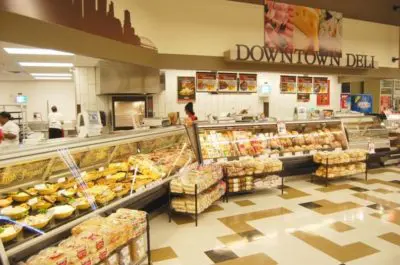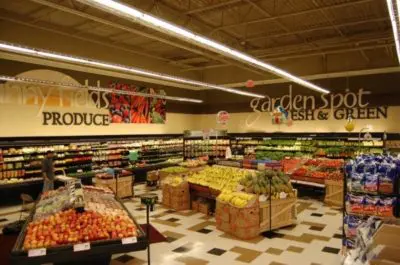$3.5 Million in New Markets Tax Credit Funds
Jim’s Local Market
Jim’s Local Market Community Development Project Story
The Southeast Community corridor of Newport News area is designated as a food desert.* Affordable, healthy, nutritional food choices are not readily available. Transportation to food providers is not only expensive, but the time incurred for transportation puts some of that food at risk of improper food handling, which could lead to spoilage if exposed for prolonged periods of time. The area includes one of the highest concentrations of poverty in the city. In addition, some of the highest unemployment numbers exist here and the number of jobs available in the direct vicinity is low.
CBO’s subsidiary, Community Development Funding, provided $3.5 million in New Markets Tax Credit funding to finance the Brooks Crossing mixed used development which includes Jim’s Local Market (JLM) as its anchor tenant. JLM addresses the low income Southeast Community’s need for healthy foods by operating a 69,000 square foot full-service, conventional supermarket with easy access for 66,000 area residents.
Carrying a wide assortment of goods in a clean, safe environment, the store will appeal to the mixed demographic base surrounding the store. JLM also includes nutrition education in its model and will work with Bon Secours to have an on-site nutritionist in the store. JLM will be a catalyst in bringing the neighborhood together by supporting community activities, churches and schools by providing a percentage of their pre-tax profits to the neighborhood. The employee base of the store will be largely made up of people that live in the neighborhood, providing much needed jobs.


The Brooks Crossing development is a Public Private Partnership between Brooks Crossing and the Newport News Economic Development Agency intended to revitalize a long-neglected part of the city and stimulate economic activity. Besides Jim’s Local Market, it will also include a police station and a mix of residential, office and retail uses.
* Food deserts are defined as urban neighborhoods and rural towns without ready access to fresh, healthy, and affordable food. Instead of supermarkets and grocery stores, these communities may have no food access or are served only by fast food restaurants and convenience stores that offer few healthy, affordable food options. The lack of access contributes to a poor diet and can lead to higher levels of obesity and other diet-related diseases, such as diabetes and heart disease.
